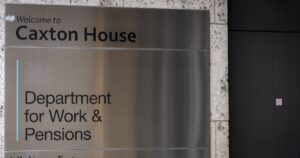
Average Brits are set to pay more than £1,200 in tax next year as the cost of living crisis is set to bite hard-working Brits even harder.
In her October budget, the Chancellor Rachel Reeves increased Capital Gains Tax (CGT) to align it more closely with income tax rates.
The rates for Basic-rate taxpayers rose from 10 to 18 per cent on most assests and from 20 to 24 per cent for residential property.
Capital Gains Tax is a tax on the profit when you sell (or ‘dispose of’) something (an ‘asset’) that’s increased in value. It’s the gain you make that’s taxed, not the amount of money you receive.
She also reduced the Dividend Allowance on shares with rate will changing from £1,000 in dividend income tax-free to just £500.
Share dealing and investing website ineractive investor calculated how much the average Brit would pay if they were on an annual salary of £35,000 and had received income of £2,000 in dividends after 30 October 2024.
Myron Jobson, ii’s senior personal finance analyszt, said the triple whammy of CGT cuts and dividend tax allowances and the freeze on the threshold at which income tax becomes payable meant that in 2025 some Brits would face paying £1,261 more in tax.
This figure rises to £1,831 for someone earning £50,000 and £3,836 for those earning £100,000.
Jobson said the CGT allowance was reduced from £6,000 at the start of the 2023/24 tax year to £3,000 in April 2024. “Our CGT calculation assumes a £10,000 gain was realised ahead of the CGT allowance cut.”
He said that CGT rates on shares increased from 10 per cent to 18 per cent for basic rate taxpayers on 30 October 2024 and 20 per cent to 24 oer cnet for higher rate taxpayers.
“This means that gains held outside tax wrappers like ISAs and Sipps are now subject to greater tax.”
A freeze on the personal allowance at £12,570 from April 2023 until April 2028, combined with wage inflation, will also increase the tax bill for many Brits.
He added “This means those earning £35,000, £50,000, or £100,000 would see their tax burden increase by £358, £783, and £2,788 in 2025, respectively, due to frozen tax thresholds. This is because tax thresholds are not keeping pace with wage inflation, currently 4.8%.
How much more tax will we pay in 2025
|
Salary: £35,000 |
2024 |
2025 |
Extra tax burden |
|
Fiscal drag tax burden (income tax and NI) |
£6,393 |
£6,751 |
£358 |
|
CGT on £10,000 gain |
£400 |
£1,260 |
£860 |
|
Tax on £2,000 dividend income |
£88 |
£131 |
£43 |
|
Total |
£6,881 |
£8,142 |
£1,261 |
|
Salary: £50,000 |
2024 |
2025 |
Extra tax burden |
|
Fiscal drag tax burden |
£10,668 |
£11,451 |
£783 |
|
CGT on £10,000 gain |
£800 |
£1,680 |
£880 |
|
Tax on £2,000 dividend income |
£338 |
£506 |
£168 |
|
Total |
£11,806 |
£13,637 |
£1,831 |
Source: interactive investor
Jobson said there are ways to reduce an overtall tax bill. He added: “If your tax position is complicated, it may be worth seeking professional advice from a certified tax adviser to identify where you can save.”
Marriage Allowance
If married or in a civil partnership, you can transfer up to £1,260 of unused personal allowance to your partner, saving up to £252 annually.
Salary Sacrifice
Paying into a workplace pension via salary sacrifice reduces your taxable income and NI bill. However, it may impact entitlements like maternity pay or mortgage applications, so consider the broader financial implications.
Pension contributions and Gift Aid
Contributions to a Self-Invested Personal Pension (SIPP) or donations through Gift Aid reduce taxable income. These are especially useful for restoring personal allowances if your income exceeds £100,000, or regaining Child Benefit eligibility.
Investment savings
Bed & ISA
Shifting investments into an ISA protects future gains and dividends from tax. This involves selling and rebuying shares, which may trigger CGT charge, but offers long-term tax advantages.
Spread gains across tax years
To minimise CGT, split sales across tax years (e.g. sell on 5 April and 6 April). Gradual sales can also help keep you within a lower tax bracket.
Use losses to offset gains
Losses on investments can offset gains, reducing your overall tax liability.
Transfer assets to a spouse
Transferring assets between spouses or civil partners (tax-free) allows both to use their allowances, potentially doubling CGT and dividend ta
















